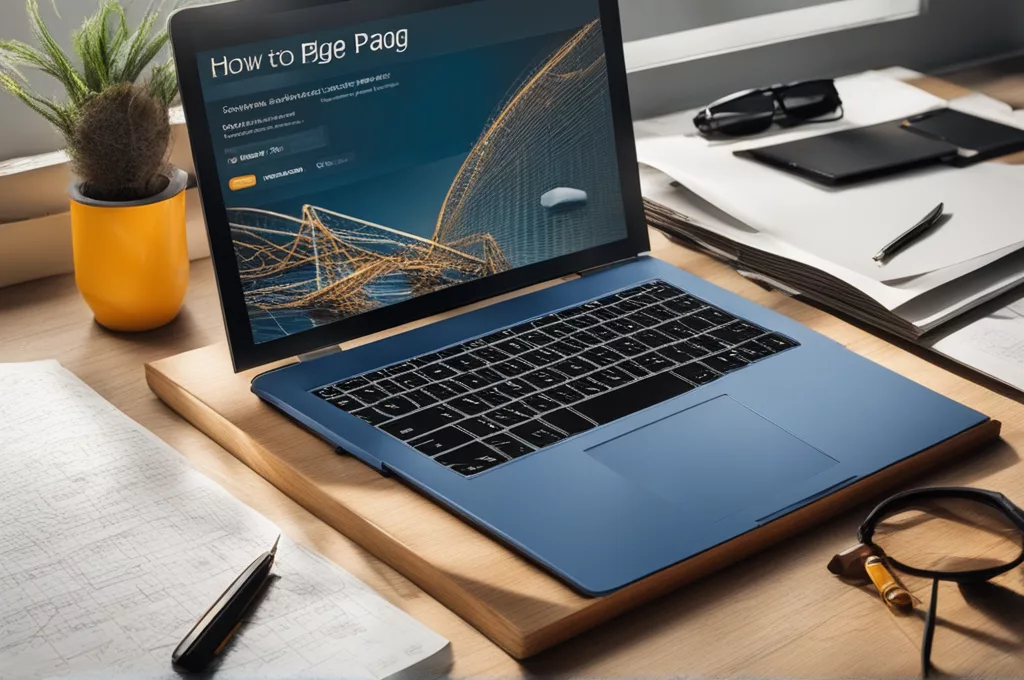
[object Object]
 – Use subheadings and include a call-to-action in the last section.
– Use subheadings and include a call-to-action in the last section.
1. Why Optimize Your About Page?
Before we dive into the optimization strategies, it’s essential to understand why optimizing your blog’s About page is crucial. A well-written About page can significantly boost your SEO efforts, establish trust, and improve user experience.
2. Core Elements to Include in Your About Page
To make your About page search engine friendly and engaging, incorporate these core elements:
- Your Name: Include your full name, preferably at the top of the page. Search engines use this data to understand who you are and create a more relevant search experience for users.
- Headline or Blog Title: Your headline or blog title should be clearly mentioned as it’s the primary focus for search engines, and users will want to know what they can expect to find on your blog.
- Expertise: Explain your field of expertise and how you gained it. This helps establish trust among users and search engines.
- Authority: Demonstrate your authority within your niche by citing your accolades, certifications, or your blog’s popularity (if applicable).
- Trustworthiness: Show your commitment to providing useful, high-quality content to readers. Use a clear call-to-action inviting readers to explore your content.
3. Key SEO Strategies for Your About Page
Here are some tactics to help optimize your About page for SEO:
Keywords: Use targeted keywords in your About page’s title, headings, and content to help users find your blog content. Remember, the keywords should be related to your niche and have high search volume.
| Keyword | Example | Search Volume |
|---|---|---|
| Search Engine Optimization (SEO) copywriting | SEO copywriting techniques | 4,700 |
Optimize Page Speed: Keep your About page lightweight by using images with appropriate dimensions and optimizing them for web. This will ensure a faster loading speed for your users.
Average page load time should be below 3 seconds for optimal user experience.
Use Internal Links: Link to your other blog posts and pages from your About page. This not only provides a better user experience but also helps to pass PageRank.
Include Social Media Links: Encourage readers to connect with you on their preferred social media platforms. This can improve user engagement and help to spread your content.
Mobile Optimization: Ensure your About page is responsive and easily accessible on mobile devices.
4. Writing an Engaging About Page
Writing an engaging About page is crucial. Here are some tips:
- Be Personal: A personal touch goes a long way in making your About page more memorable. Share your personal story or values, and let your personality shine.
- Keep it Concise: Avoid excessive jargon or technical terms. Write in an easy-to-understand style with short paragraphs.
- Use Active Voice: Writing in the first person and using active voice can make your content more engaging and easier to read.
- Include Visual Elements: Images, infographics, and videos can make your About page more engaging and memorable. However, ensure these visual elements are optimized and not too large.
Call-to-Action: Don’t forget to include a clear call-to-action, such as “Subscribe to our newsletter” or “Get in touch,” to encourage users to explore your blog.
5. Final Thoughts
Optimizing your About page is essential for boosting your SEO efforts and improving user experience. By incorporating targeted keywords, optimizing page speed, using internal links, and including social media links, your About page will become an effective tool for driving traffic to your blog.
Remember to keep your About page concise, personal, and engaging. A well-written About page can help establish trust with users and search engines, and ultimately improve your blog’s visibility online.
Let’s get started on creating an optimized and engaging About page for your blog today!
Ready to take your blog to the next level? Let’s dive into our next step, where we’ll explore how to write compelling content for your About page.

[object Object]
You May Also Like

How to Structure a Blog Post for Engagement
July 3, 2025
Maximizing Blog Performance: A Guide to Reducing Crawl Errors
July 22, 2025

